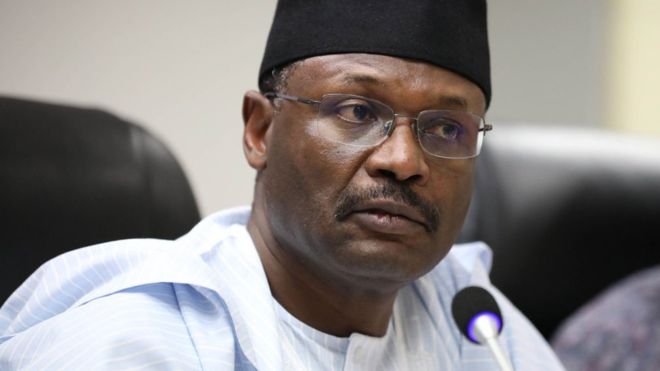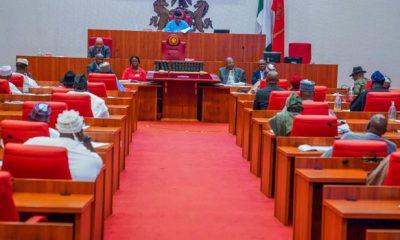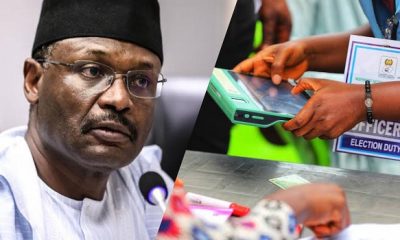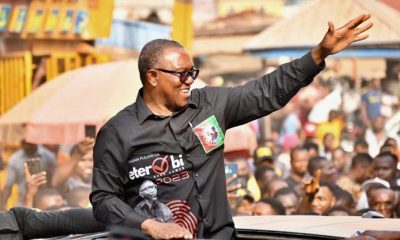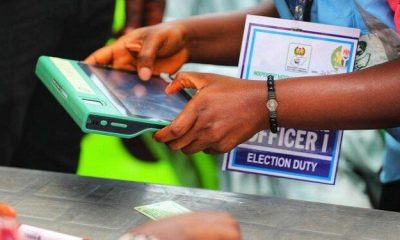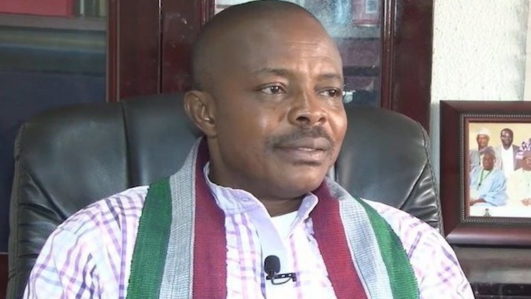After two days of debate across Nigeria, with claims and counterclaims over the decision of the National Assembly on the amendment to the Electoral Act, the Independent National Electoral Commission (INEC) has dispelled insinuations that it lacks the ability to transmit election results electronically in 2023.
The commission said it has the capacity for electronic transmission of results from remote areas of the country.
“We have uploaded results from very remote areas, even from areas where you have to use human carriers to access,” INEC’s National Chairman and Commissioner for Information and Voter Education, Mr. Festus Okoye, said on Channels television.
“So, we have made our own position very clear, that we have the capacity and we have the will to deepen the use of technology in the electoral process.”
But Okoye said INEC would be guided by the power granted it by the constitution and the law.
“Our powers are given by the constitution and the law, and we will continue to remain within the ambit and confines of the power granted to the commission by the constitution and the law,” he stressed.
The issue of electronic transmission of results had caused sharp divisions in both chambers of the National Assembly with members voting mainly along party lines.
On Thursday, the majority of Senators voted for an amendment o Section 52 proposed by the Deputy Whip, Sabi Abdullahi, that: “The commission may consider electronic transmission provided the national network coverage is adjudged to be adequate and secure by the Nigerian Communications Commission and approved by the National Assembly.”
A total of 52 senators voted in favour while 28 voted against. A total of 28 senators were absent during the voting process.
The House of Representatives followed on Friday by also ceding the prerogative to decide the mode of transmitting election result to INEC.
The House upheld the controversial Clause 52(2) which allows INEC to determine when, where and how voting and transmission of results will be done.
It stipulates thus: “Voting at an election and transmission of result under this bill shall be in accordance with the procedure determined by the commission.”
Most members of the House from the opposition PDP had walked out after sensing the direction the pendulum was swinging.
Minority Leader Ndudi Elumelu dissociated the PDP caucus from the decision.
Speaker Femi Gbajabiamila said the House was not against electronic transmission of result, but rather interested in ensuring that the vote of every Nigerian is protected.
He said contrary to insinuations in some quarters that legislators did not want electronic transmission of result, the lawmakers wanted a system that would make all votes count.
He said: “Based on the information from experts, it is not as easy as it sounds. We must get our electoral process right and when the right is right, we can come back and amend the law. We don’t want to disenfranchise anybody.
“We have consistently said that every vote must count. It is not about 10 or 20 per cent coverage or even 90 per cent. If one person’s vote is not counted it will defeat what we have said on this floor that every vote must count.”
He said there was a big difference between electronic voting and electronic transmission of result saying: “From my research, electronic voting does not even take place in any European country that I know of. Not in Germany, not in England, not in Spain, not in France or any part. In fact in Germany, they did a referendum on electronic voting and they voted against it.
“So, I don’t think that electronic voting is feasible right now. What we have been talking about is electronic transmission and from what we have been told today, we need to do more work so that everybody’s vote will be counted.”
Addressing the House earlier in the day, the Executive Commissioner, Technical Services of the Nigeria Communication Commission (NCC), Engr. Ubale Maska, said only 50.3 per cent of the 119,0000 polling units in the country as at 2018 are covered by 2G and 3G network.
Maska, who stood in for the Executive Vice Chairman of the Commission, Prof. Umar Garba Dambatta, said election results could only be transmitted by the 3G network which he said covers only 50 per cent of polling units in the country.
He explained that the result of their 2018 analysis of polling units across the country revealed that 49.7 per cent were yet to be have any form of network coverage.

 News3 years ago
News3 years ago
 Entertainment2 years ago
Entertainment2 years ago
 News3 years ago
News3 years ago
 Privacy3 years ago
Privacy3 years ago
 Sports2 years ago
Sports2 years ago
 Entertainment2 years ago
Entertainment2 years ago
 News3 years ago
News3 years ago
 Opinion3 years ago
Opinion3 years ago
